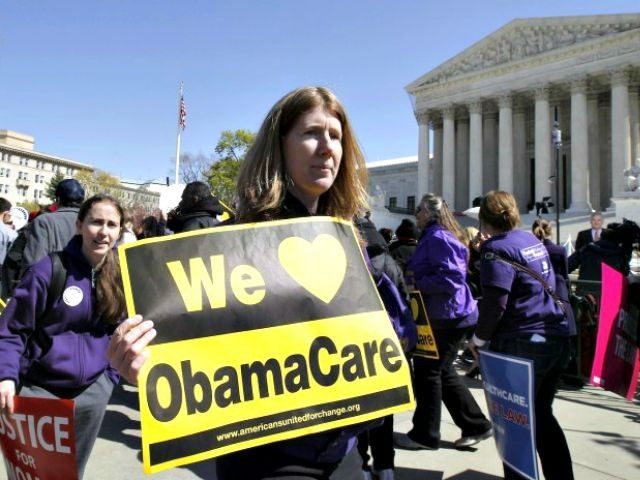The Federal Reserve Bank of New York found that 17 percent of service sector firms and 21 percent of manufacturers are reducing the number of workers they employ due to Obamacare.
The New York Federal Reserve produces the highly informative monthly “Empire State Manufacturing Survey/Business Leaders Survey.” But due to employer concerns about exploding health insurance costs, the NY Fed conducted a “Supplemental Survey Report” to determine the impact of Obamacare on employment trends.
The NY Fed asked firms to identify the factors that have contributed most toward increasing or reducing health care costs. The respondents tended to blame higher costs on Obamacare, an aging workforce and prescription drug costs.
Asked whether they were changing their health plans in response to Obamacare, three in five respondents — in both the manufacturing and service sector surveys — said they were. The most widely reported adjustments involved higher deductibles, increased co-pays, and higher out-of-pocket maximums for employees.
About 83 percent of firms indicated that they would be paying higher total healthcare premiums in 2017. As a result:
- 73 percent of firms were raising employee premiums;
- 65 percent were raising employee out-of-pocket expenses; and
- 67 percent were increasing employee co-pays.
Due to Obamacare, about 14 percent of manufacturers and 18 percent of service firms indicated that more employees are now being covered by health insurance; 2 percent of manufacturers and 8 percent of service firms said that fewer employees are now being covered.
By subscribing, you agree to our terms of use & privacy policy. You will receive email marketing messages from Breitbart News Network to the email you provide. You may unsubscribe at any time.
When asked if they were making specific changes to certain fundamental business measures, owing to effects of the Obamacare, “roughly 17 percent of service sector firms and 21 percent of manufacturers said they were reducing the number of workers in response to” Obamacare. The vast majority of respondents in both surveys said they were not changing the proportion of part-time workers that are ineligible for Obamacare.
Both manufacturing and service firms said wage and salary compensation and other benefits were not being affected by Obamacare. But “slightly less than a third of manufacturers and 21 percent of service sector panelists said they were raising the prices they charge to customers.”
About 17 percent of manufacturers and 22 percent of service firms said the expensive Obamacare “Cadillac Tax” on high-value insurance plans would apply to their health plans when it becomes effective in 2018. Another 37 percent of manufacturers and 32 percent of service companies were not sure if they would be subject to the additional tax.
The New York Federal Reserve only surveyed businesses in New York State regarding the impact of Obamacare on employment and costs. For those Americans across the United States that are unfortunately purchasing health insurance on an Obamacare exchange, the average premium increase for 2017 will be 23 percent, according to ACASignups.net blog.

COMMENTS
Please let us know if you're having issues with commenting.